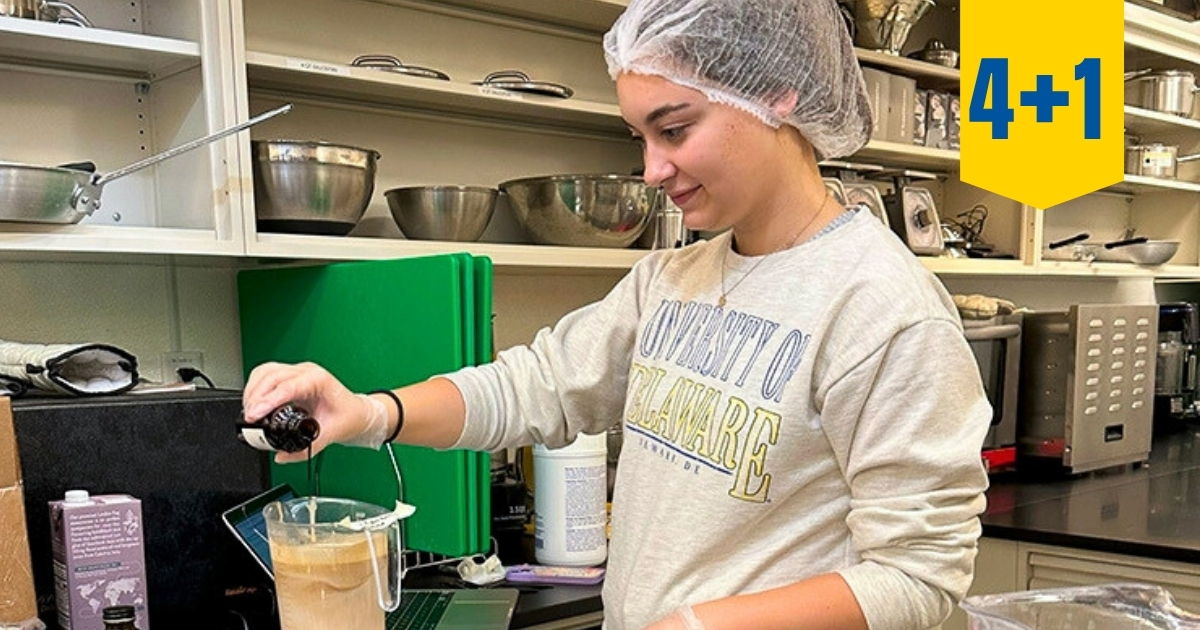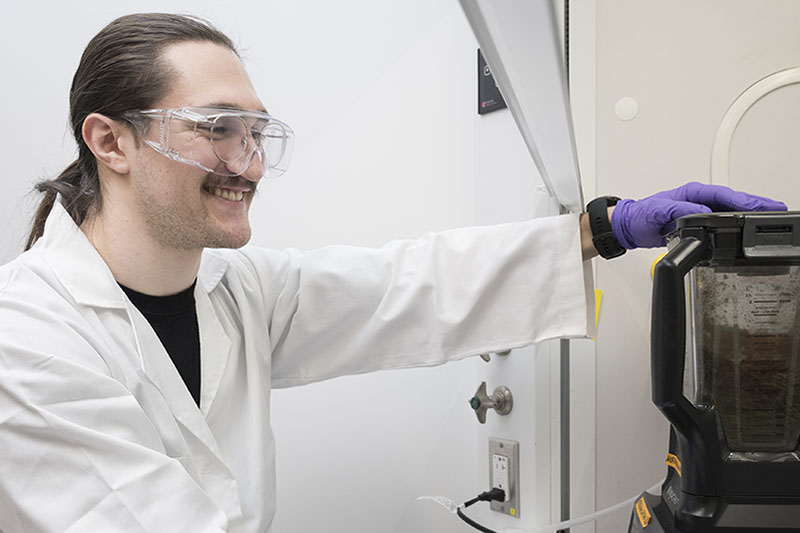
Food Science/Food Technology 4+1 (BS/MS)

Food Science/Food Technology 4+1 (BS/MS)
Our Food Technology (4+1) program offers you the opportunity to earn a master’s degree in just one accelerated year after completing your bachelor’s degree.
The program is structured for progressive expertise: your undergraduate years provide valuable training in food science fundamentals, and the subsequent graduate year transitions your skills to the field, offering in-depth, real-world experience. This comprehensive approach equips you with the essential tools and enhanced core competencies needed to pursue food science careers in a rapidly changing job market.
How this program works
You will join the University of Delaware as an undergraduate student in a B.S. program in Food Science, Food Science - Culinary Concentration, or Food Science - Operations and Management Concentration. Once you have earned at least 60 credits (i.e., junior standing), you may apply to the +1 component, the Food Technology MS program. Admission decisions are made by the department’s graduate committee and require a minimum GPA of 3.0, although students who do not meet this GPA criterion may still be considered upon recommendation of their advisor. Up to eight credits of graduate coursework (600 level and above) may be applied toward satisfying the requirements of both degrees.
Food scientists are in high demand
including positions in product development, formulation, agri-food production, value-added processing, and food safety.
$80,000 - $90,000
The median salary estimate for individuals working as food scientists and technologists.
What makes our program unique?
Our Food Technology (4+1) program caters to your specific interests and career goals.
Throughout the 4+1 program, your dedicated faculty advisor will work with you to develop and refine your career goals. Together, you will develop an individualized curricular plan and design a unique meaningful project to refine the skills specific to your career objectives.
The curricular plan will include three to four food science courses (12 credits), one ethics course designed to teach problem solving (3 credits), two business courses related to leadership and project management (6 credits), and two purely elective courses that can relate to either food science or business (6 credits).
Career outcomes
With the Food Technology 4+1 program, you will gain a competitive edge in a short period of time. Employers across the food supply system and the allied industries recognize the value of an MS degree. This is true of all areas, including product development, quality control and quality assurance for positions in industries, government, and academia.
Course highlights
Students explore both traditional and emerging food processing technologies, as well as a range of food packaging materials and methods. The course examines how processing, preservation, and packaging influence food quality, safety, and shelf life.
Students will investigate the role and significance of microorganisms in foods with particular reference to food spoilage, preservation, fermentation, sanitation and poisoning. Explore the current methodology used in the microbiological examination of foodstuffs.
Students explore aspects of genetic engineering and fermentation technologies. Technical, economic and social aspects of biotechnology are researched and analyzed through individual and group assignments and lectures. Field trips offer valuable insights into local biotechnology enterprises.
Articles/alumni stories
Contact us
Kali Kniel
Office location:
531 S. College Avenue
044 Townsend Hall
Newark, DE 19716
What is a 4+1?
Our accelerated degree (4+1) programs enable students to apply for a graduate program as early as their junior year of undergraduate study.
If granted acceptance, students will take 6 to 8 credits of graduate-level courses during the final year of their undergraduate program. Because these credits can be dual-counted toward both the bachelor’s and master’s degree programs, students can complete both their undergraduate and graduate degrees in only one additional year—or five years total.


